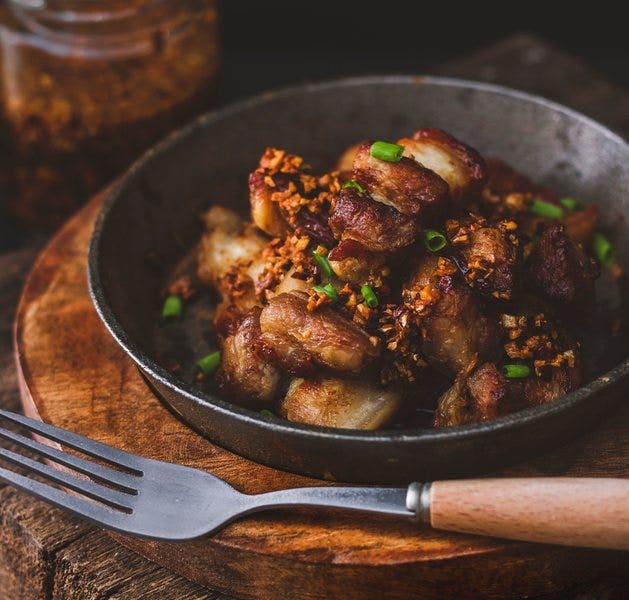
How to Deglaze a Cast Iron Skillet in 7 Easy Steps
Step 2 - Take a clean dishcloth or rag and scrub the salt and soap mixture all over your skillet. Move rapidly in a circular motion for the most effective results. Step 3 - Rinse off this mixture under warm water. Then, using your hands, scrub the insides of your pan under running water.

How to Deglaze a Cast Iron Skillet in 7 Easy Steps Cast iron skillet
Step 1: Prepare your stovetop dish. Whether you're searing a sirloin steak or sauteing caramelized onions, begin by preparing the food you want to deglaze. As you sear, simmer or saute, try to prevent food bits from burning on the bottom of the pan—rather than simply sticking—as burnt food particles can make a sauce taste bitter.
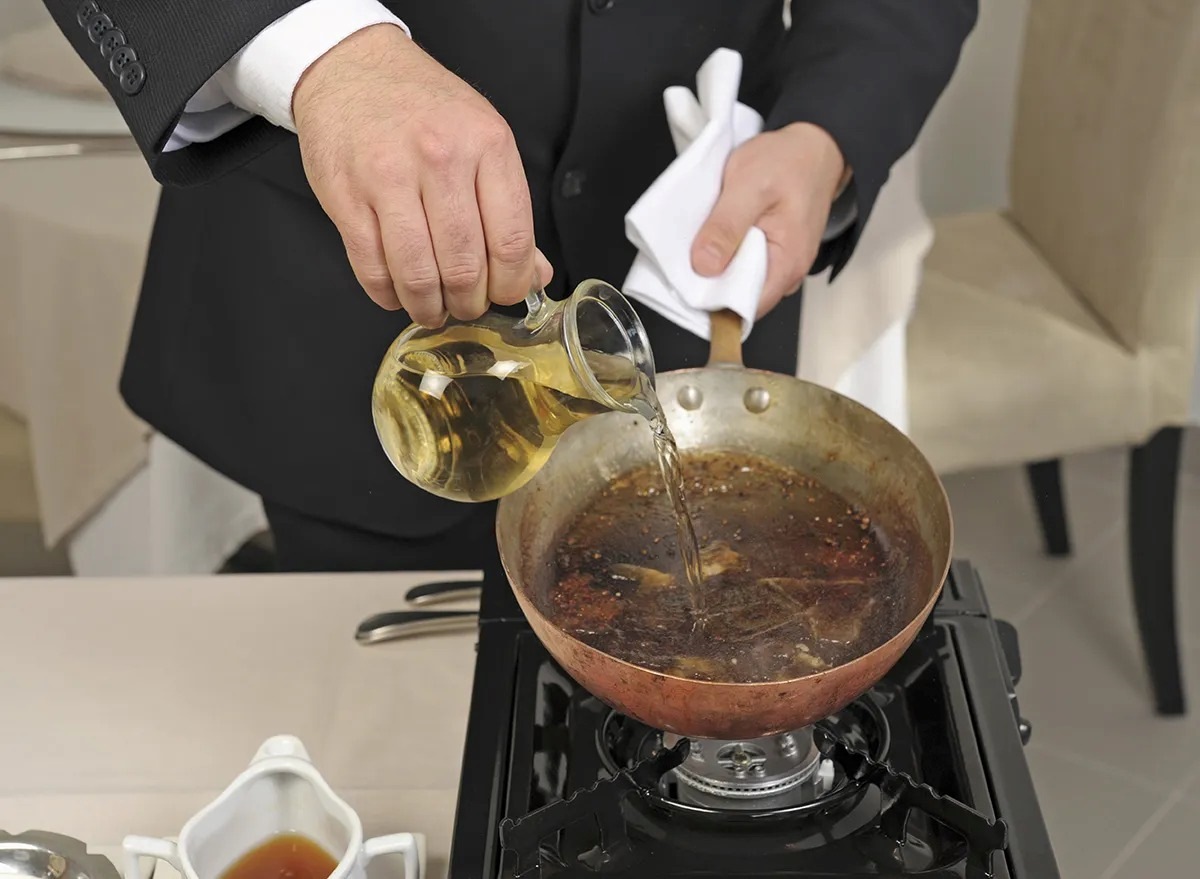
How To Deglaze A Cast Iron Skillet
Boil the liquid in the pan and stir vigorously. With the pan on medium to medium-high heat, scrape the bottom with a wooden or silicone spoon or spatula vigorously as the liquid comes to a boil. Let the liquid boil briefly, until it's reduced but not completely evaporated. As it boils, continue to stir until you've released all those tasty.

How to Deglaze a Cast Iron Skillet Like a Pro The Ultimate Guide
It's happened to all of us. You're cooking up a storm in your cast-iron skillet, and then disaster strikes - a stubborn piece of food gets stuck to the bottom and refuses to budge. But don't despair! There's a secret weapon that can help you quickly and easily deglaze your pan and get cooking again: baking soda.
The Melting Pot Black and White Wednesday Cast Iron Skillet
Method. Before adding any stock to the pan, sauté the minced onion and garlic in the remaining fat until they're semiopaque. Add 1 cup of broth and bring to a boil. Use a wooden scraper or spoon to break up the black leftovers in the liquid and scrape the black off the bottom of the pan. After you have broken up as much solid particles as.

Cast iron, Cast steel, Nonferrous metal casting Suppliers Dandong
So, the next time you're cooking with your cast iron skillet, remember the importance of deglazing. You'll be amazed at the difference it can make in your dishes! The Best Way to Deglaze a Cast Iron Skillet. If you want to take your cooking to the next level, deglazing a cast iron skillet is a must.
"You can't deglaze in cast iron." I call shenanigans. castiron
Step 1: Remove meat and place pan back on the stove. Follow your nose on when to deglaze - the fond should smell nutty and delicious, not smoky or charred. If it's past the point of no return you'll have to chuck it out. Step 2: Turn up the heat and immediately pour cold liquid into the pan. This will suddenly lower the temperature, halting.
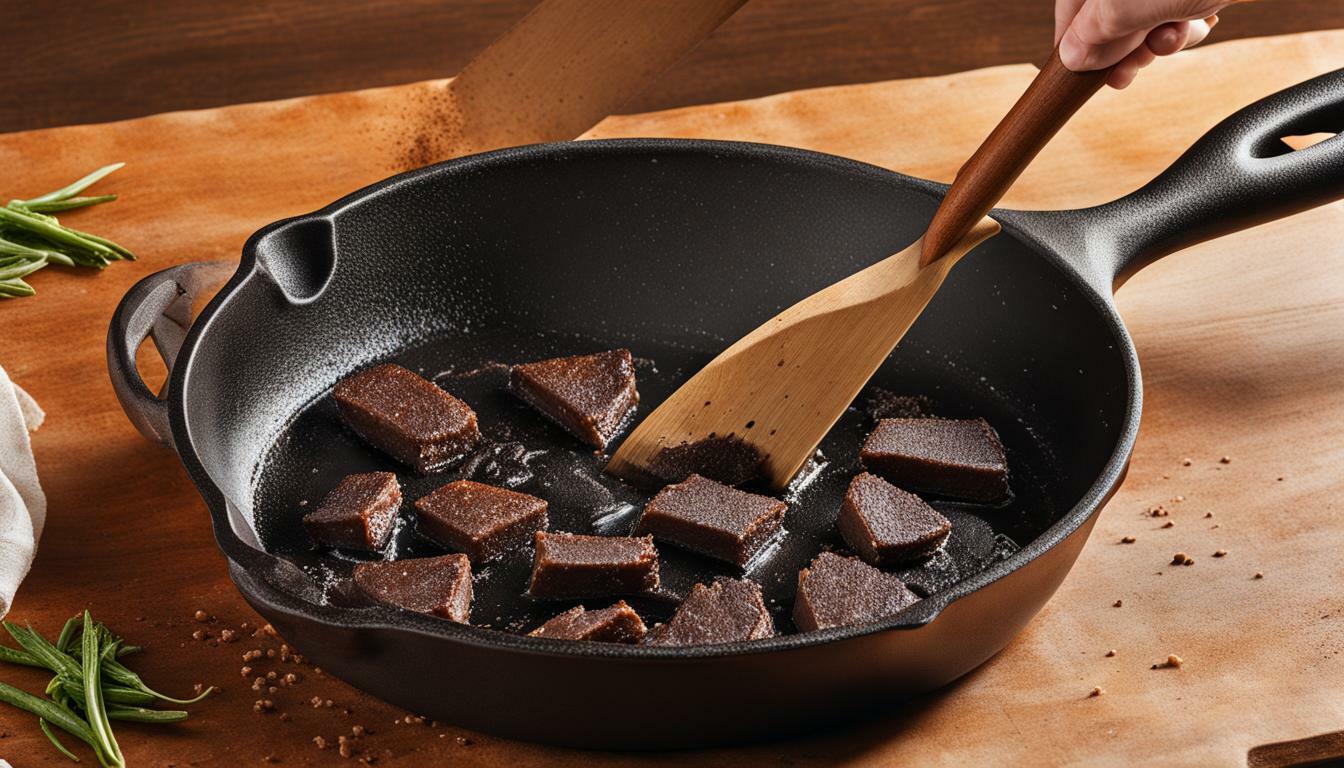
How to Deglaze a Cast Iron Skillet?
Yes, you can deglaze a cast iron pan just like any other pan. Deglazing involves adding liquid to the pan after searing or cooking food to release the flavorful browned bits stuck to the bottom. While some believe deglazing can harm cast iron seasoning, it's perfectly safe if done correctly. Use broth, wine, or water, and avoid highly acidic.
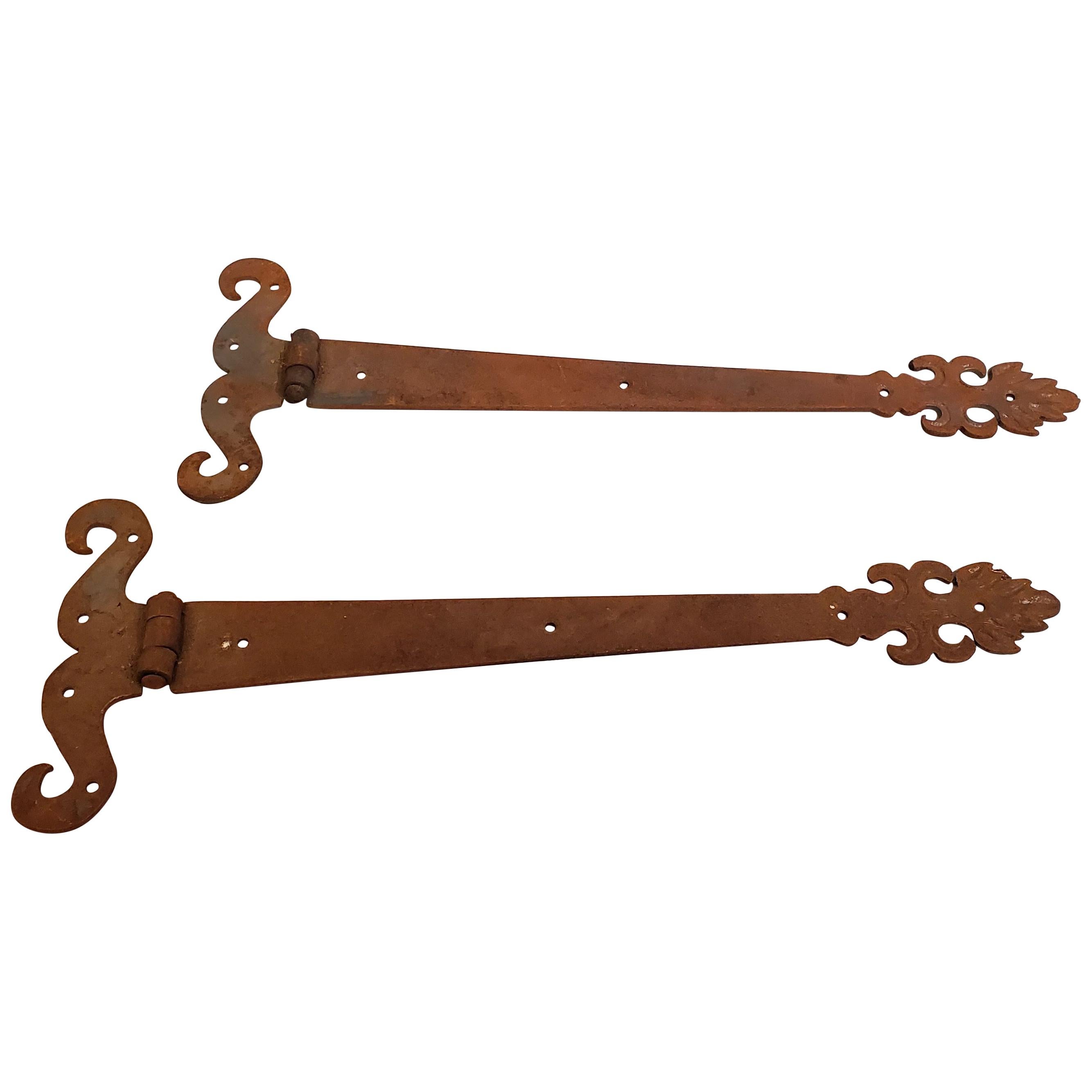
Cast Iron Grate at 1stDibs
Bring the mixture to a boil, stirring constantly to prevent sticking. Reduce the heat to low and simmer for a few minutes, allowing the flavors to meld. 2. Cold Liquid Method: Remove the cast iron pan from the heat and let it cool slightly. Add the cold liquid to the pan, taking care to avoid splattering. Use a wooden spatula or spoon to scrape.

100g Magic Repair Glue AB Metal Cast Iron Repairing Adhesive Heat
Once you're ready to deglaze, follow these easy steps: Add the liquid: With the pan over the heat, slowly pour your liquid of choice into the pan. The liquid will often steam and bubble, so take a step back if necessary. Bring the liquid to a simmer: The liquid will need to come to a simmer or gentle boil in order to activate the release of.
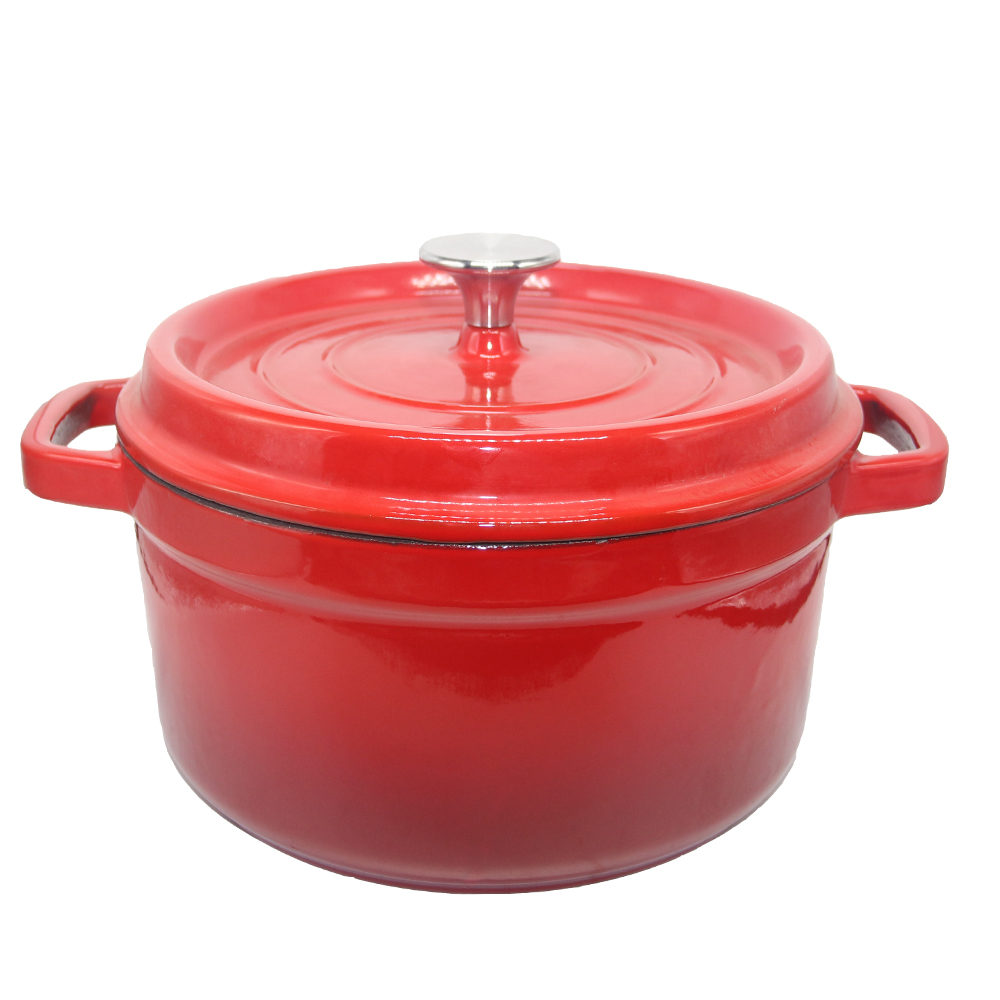
Wholesale various color enameled round cast iron casserole with one
Here's how: First, use a wire brush, metal scouring pads, or steel wool to scrub all of the rust off the surface of the pan. In this case, it is okay to use soap because you'll re-season the pan once it's clean. Next, clean it as instructed above. And last, re-season the pan so it's good as new!
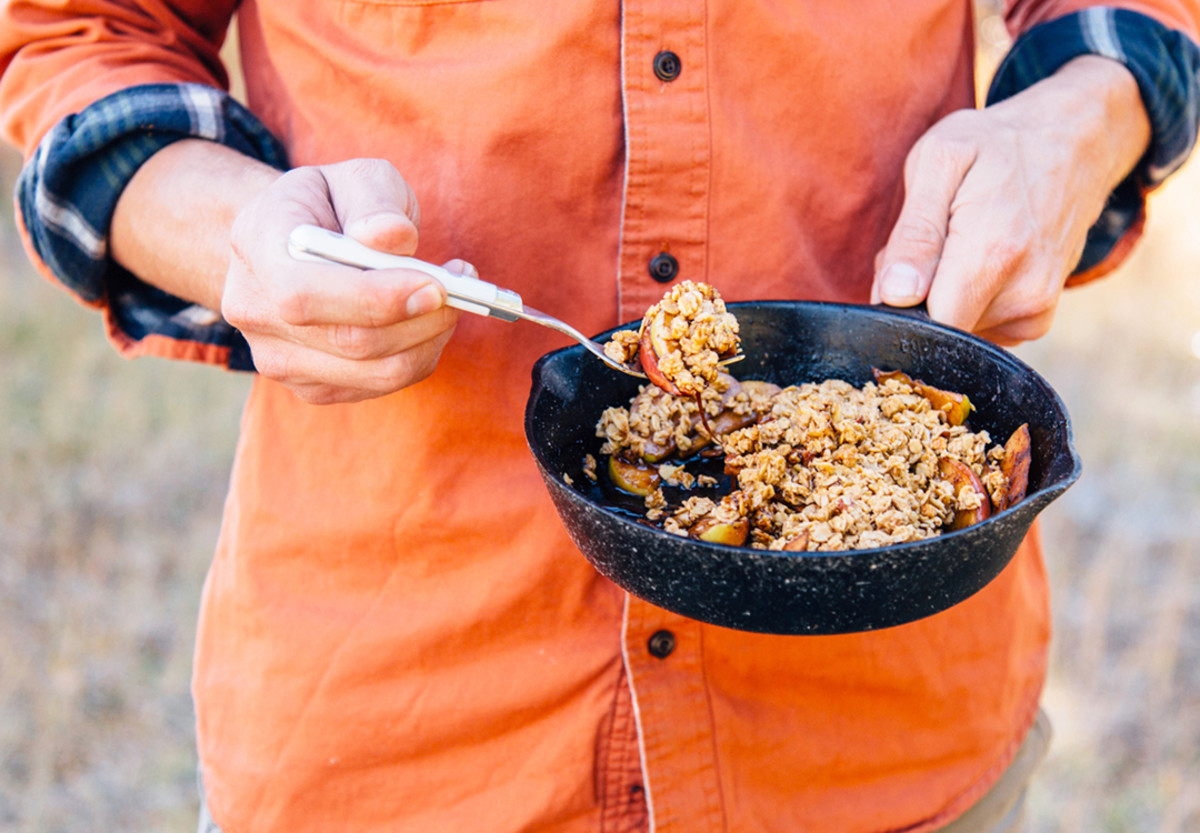
Cast Iron Is What Your Camp Cooking's Been Missing BLOGPAPI
Remove the meat or poultry from the pan. Pour off any excess fat or oil. If you're making a sauce, add any aromatic ingredients - shallots, fresh herbs, etc…. Pour cold liquid into the pan, keeping the heat on medium. Bring the liquid to a boil while scraping the bottom of the pan with a deglazing spatula (or a flat ended wooden spoon.
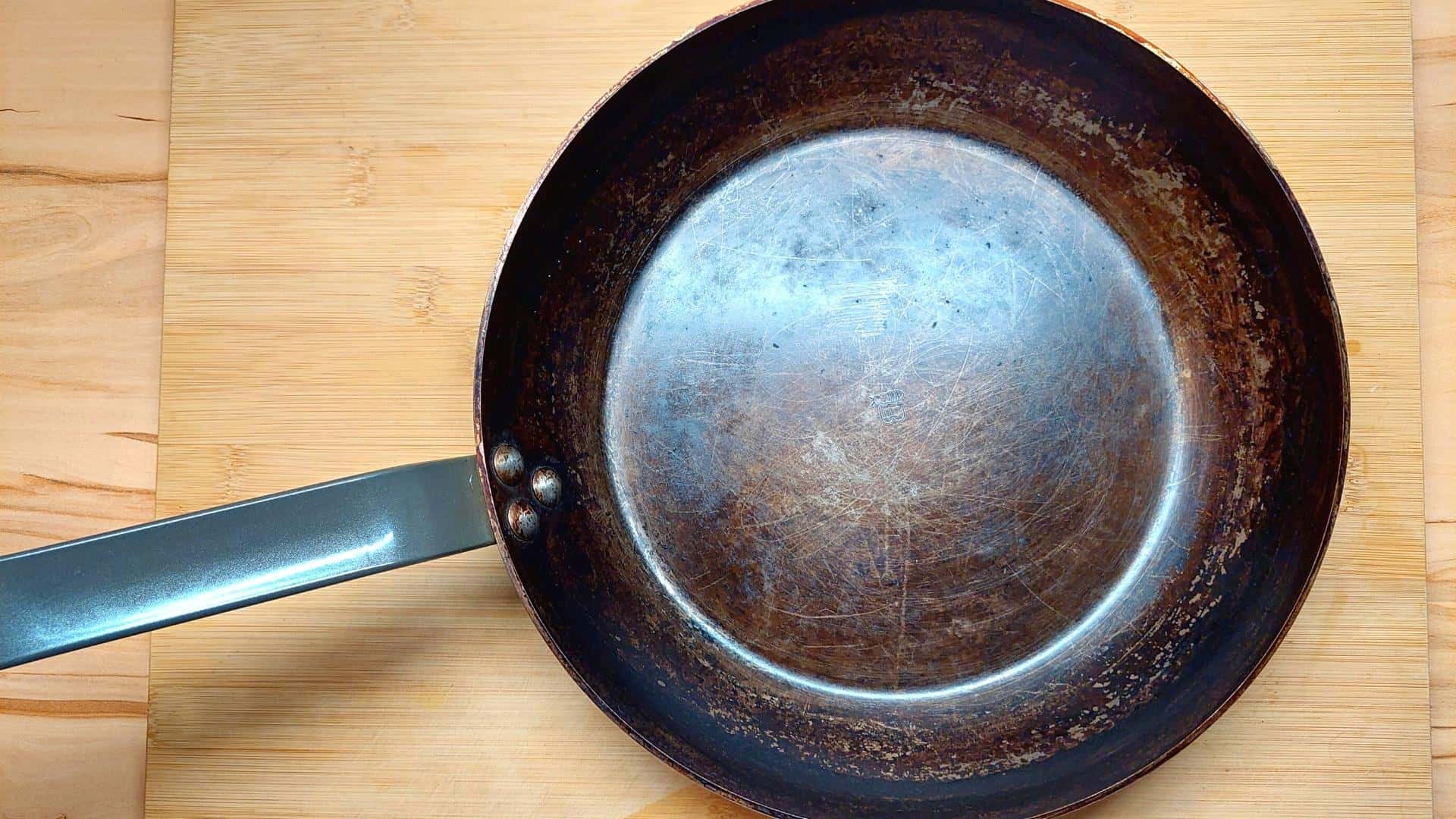
Is Your Carbon Steel Pan Losing Seasoning? How & When To Reseason
Here are the steps to follow to deglaze a cast iron pan: 1. Heat the pan over medium-high heat. 2. Add a small amount of liquid to the pan. 3. Scrape the bottom of the pan with the scraping tool. 4. Continue to scrape the bottom of the pan until the liquid comes to a boil and the food or residue comes off.
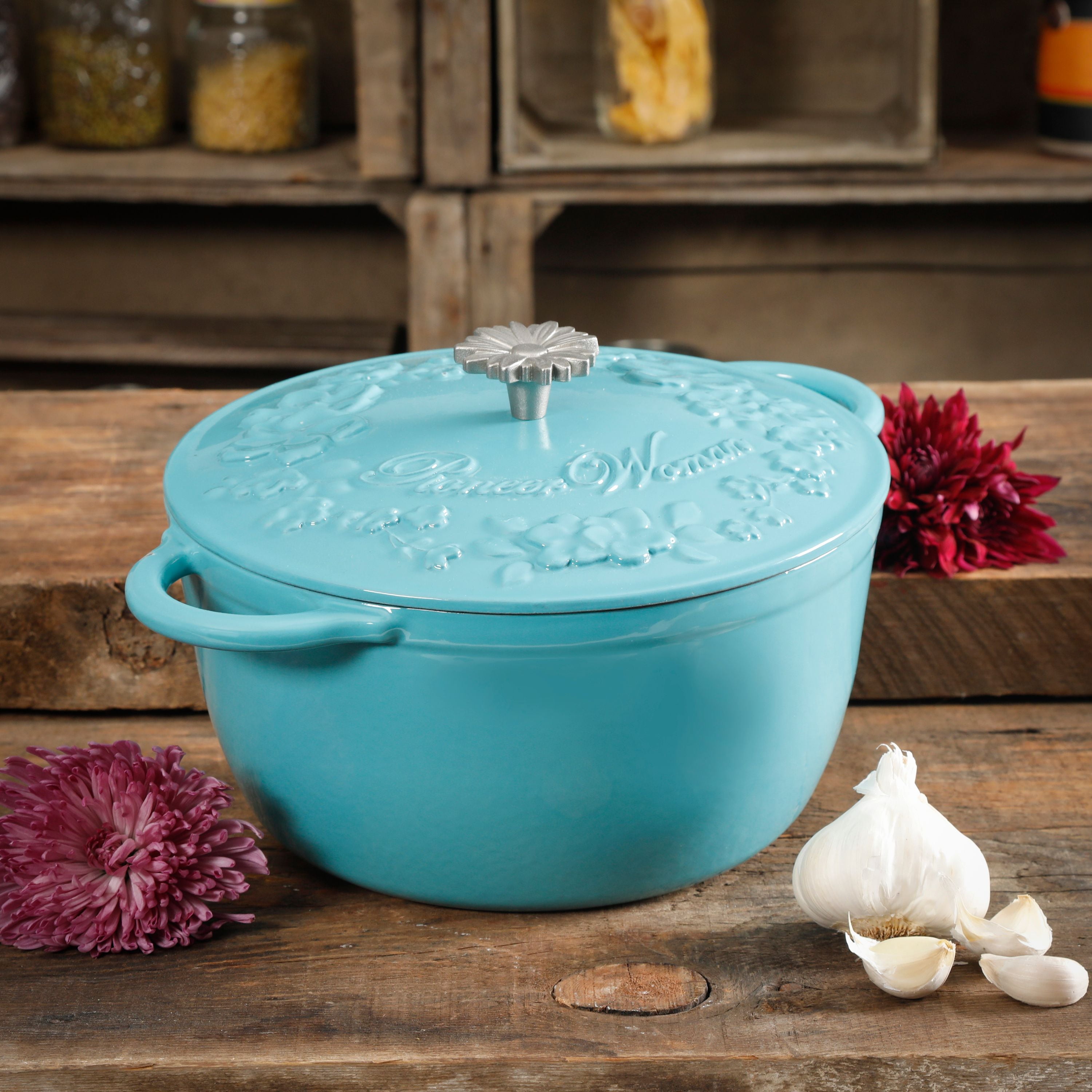
Pioneer Woman Cast Iron Deals Cheapest, Save 40 jlcatj.gob.mx
The chef says the process is often done with stock or wine. However, you can even use beer, vinegar, or juice. It's all about preference! "After finishing searing meat, whether for a stew or braise or for a quick-seared steak or chicken, add the wine or stock to the hot pan and watch as the seared bits release from the bottom of a pan," he says.
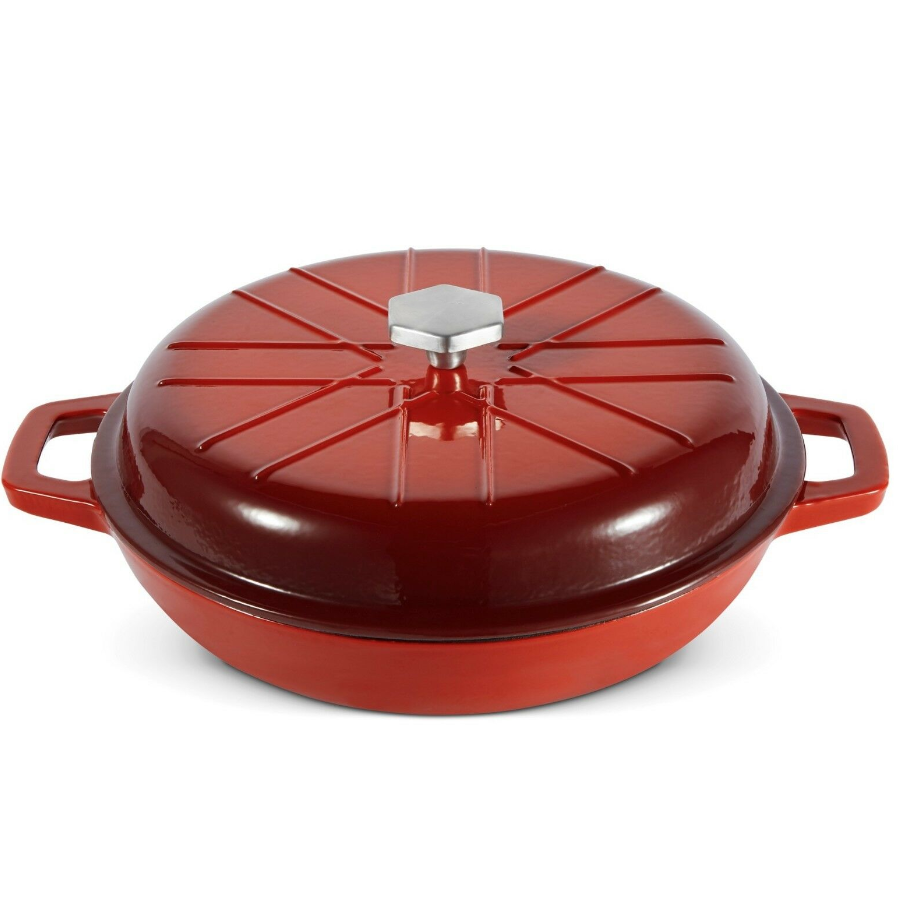
4.2 Quart Non Stick Enamel Cast Iron Casserole with Lid from China
Remove protein from the pan when it's cooked to the desired level of doneness. Check temperatures with an instant-read meat thermometer. Carefully pour off any excess fat that's in the pan, if necessary. Off the heat, add your chosen liquid to the pan. Wine, other imbibements, juice, stock… it's totally up to you.

How to Deglaze a Cast Iron Skillet in 7 Easy Steps Cast iron recipes
Step 2: Adding Your Deglazing Liquid. With your skillet still over medium heat, pour in your deglazing liquid. As discussed earlier, this could be wine, broth, vinegar, or water. Be generous but cautious. You want enough liquid to scrape up all the fond without making your sauce too thin.